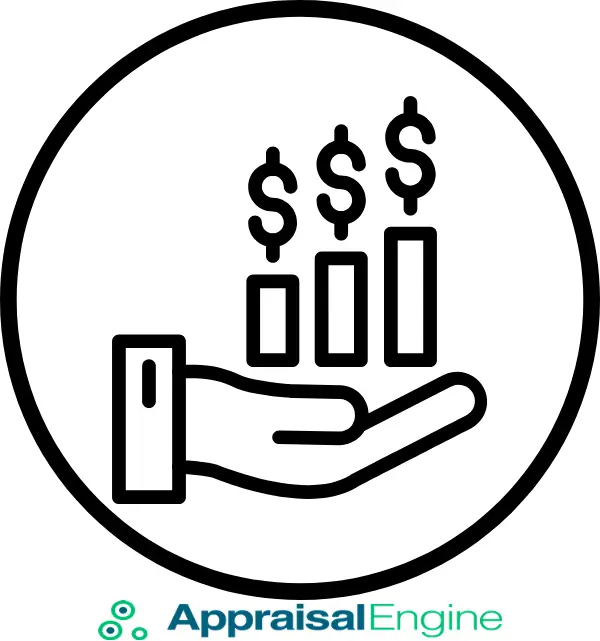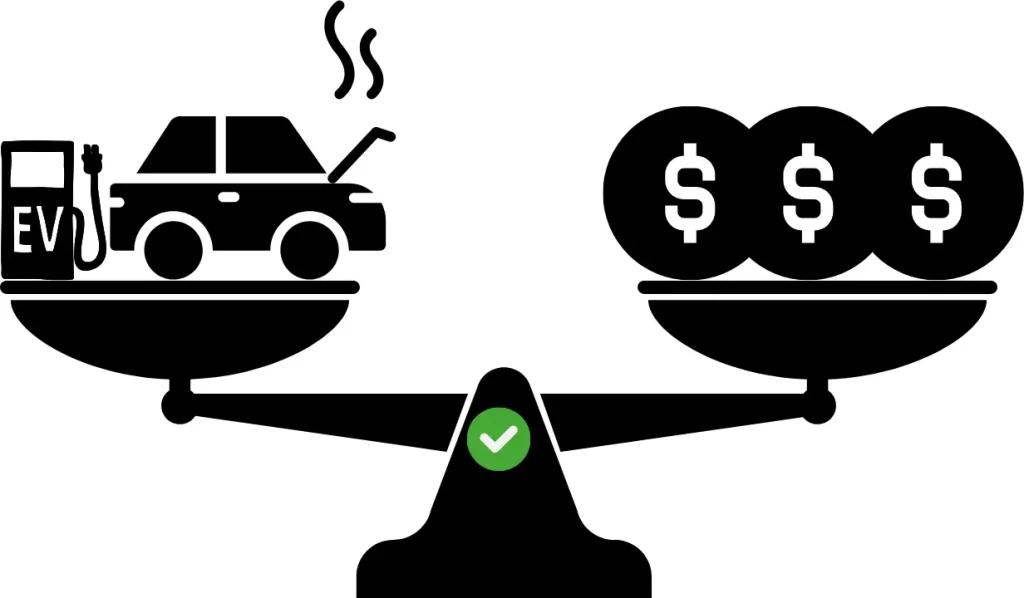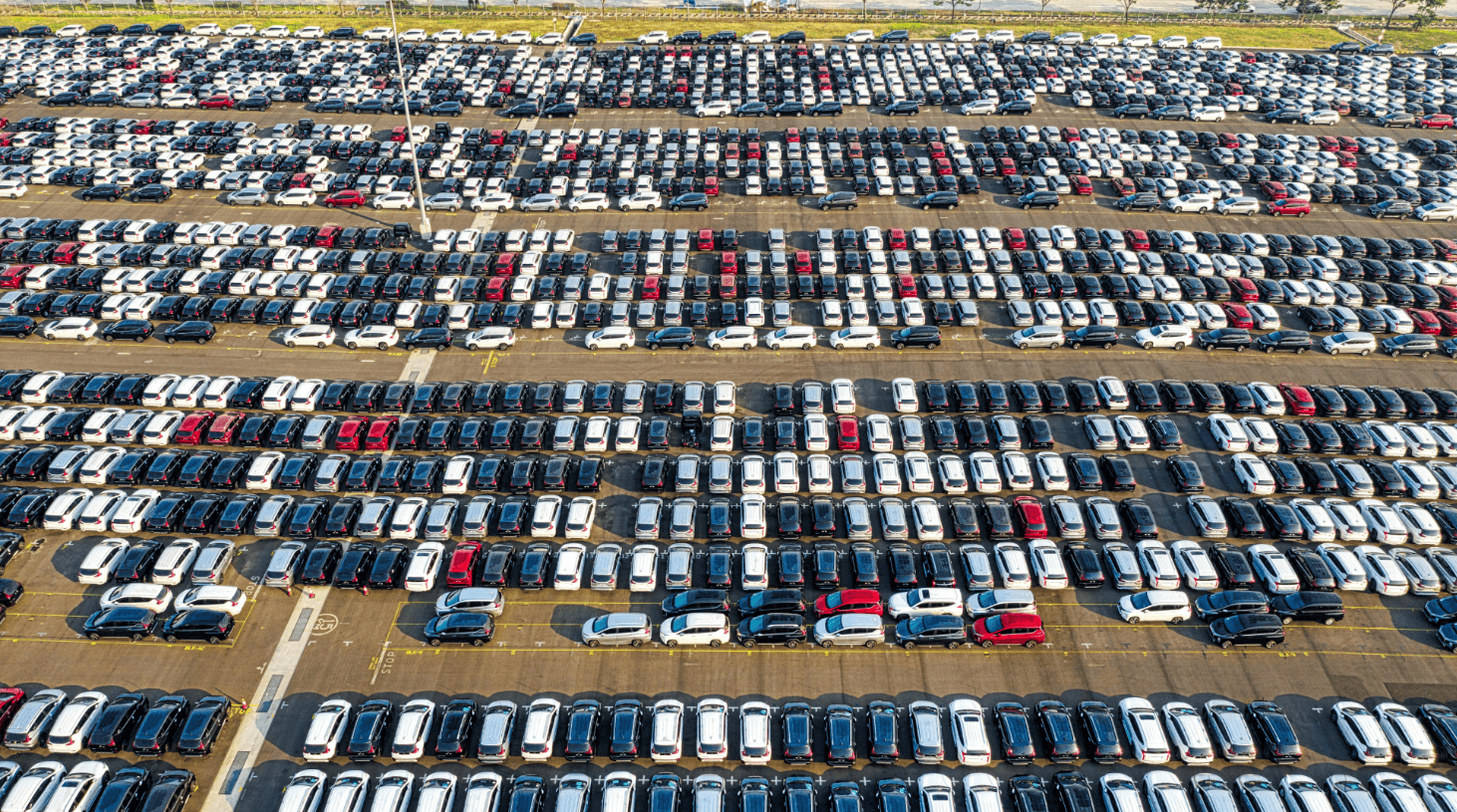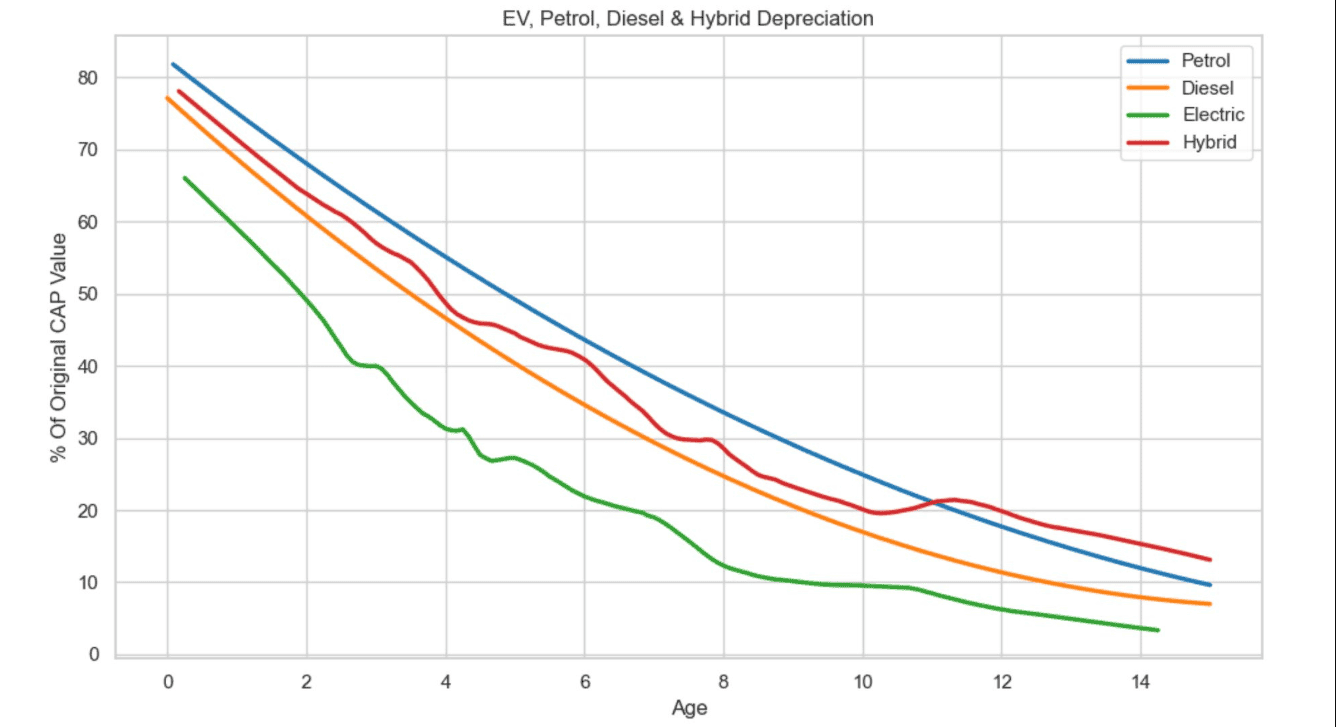Electric vehicles (EVs) are rapidly growing in popularity, thanks to their environmental benefits, advanced technology, and impressive performance. But with new technology comes new challenges—especially when it comes to understanding fair market value (FMV) after an accident.
While FMV is a key concept in determining compensation for any vehicle, EVs have unique factors that can make their post-accident value calculation quite different from traditional gas-powered cars.
In this article, we’ll dive into what makes the fair market value of EVs unique, how accidents impact this value, and what every EV owner should know when filing an insurance claim or considering a sale. Let’s explore the nuances of EV appraisal and why understanding FMV is critical for protecting your investment.
DOWNLOAD: “Fair Market Value for EVs”.PDF
Why EV Fair Market Value Is Different
Fair market value (FMV) is essentially the amount a buyer would pay for your car in its current condition, and it’s crucial when it comes to insurance claims, appraisals, or resale.
For traditional vehicles, FMV calculations consider factors like age, mileage, condition, and brand reputation.
However, with EVs, technology, battery health, and model updates play a much larger role. Since EV technology advances so quickly, newer models can make older ones depreciate faster. This dynamic creates a unique challenge for EV owners trying to understand the value of their car, especially after it’s been in an accident.
Impact of Accidents on EV Value
When an EV is involved in an accident, certain factors impact its FMV differently than traditional cars. Here are some aspects that make EV appraisals unique:
- Battery Health and Condition: In an EV, the battery is one of the most expensive components and plays a significant role in the car’s overall value. After an accident, even if the battery seems intact, it might suffer from decreased performance or shortened lifespan, leading to a drop in FMV. Battery assessments are critical after an accident to understand the real impact on the vehicle’s value.
- Repair Complexity and Costs: EVs are highly complex machines with specialized parts, which often require specialized technicians. After an accident, the cost to repair an EV can be significantly higher than for a gas-powered vehicle. Insurance companies may factor in these higher repair costs, affecting the FMV for a post-accident EV.
- Tech Depreciation: The EV market evolves quickly. As newer models come out with better range, faster charging, and improved features, older models can lose value more rapidly. This “technology depreciation” effect is even more pronounced after an accident, as buyers may hesitate to pay a premium for a damaged, older EV model when newer, better options are available.
- Limited Repair Options: Many body shops and mechanics aren’t equipped to handle complex EV repairs. If an EV is damaged, the limited availability of certified repair centers can lead to higher repair costs and longer downtime, both of which can lower the car’s FMV after an accident.
Understanding EV Diminished Value
Diminished value refers to the reduction in market value simply because a car has been in an accident. This is particularly relevant for EVs, as they often suffer from a higher diminished value due to the factors mentioned above.
For instance, the cost of replacing or repairing a battery post-accident can be extremely high. Even minor accidents may impact the battery’s efficiency, which in turn lowers the car’s FMV.
Furthermore, potential buyers might be wary of buying a previously damaged EV, knowing the potential repair and battery replacement costs they may face down the line.
For EV owners, understanding diminished value is crucial when trying to get fair compensation after an accident.

Total Loss Considerations for EVs
In cases of severe accidents where the EV is deemed a total loss, understanding FMV becomes even more essential. With traditional cars, insurance companies usually consider factors like mileage, condition, and comparable market listings to determine FMV. But for EVs, there are added complexities.
- Battery Value as a Factor in Total Loss: If the battery is damaged, it can make up a large portion of the vehicle’s repair cost, often tipping the scales toward a total loss designation. In EVs, batteries are such high-cost items that even a seemingly minor accident can lead to a total loss because the cost of battery replacement might exceed the car’s value.
- Market Demand and Model Popularity: The FMV of a totaled EV can also depend on market demand for specific models. If newer models with better features have been released, the demand for an older model may drop, reducing its FMV. For example, if a two-year-old EV is totaled, its FMV might be lower than expected due to a more advanced version being released, affecting the insurance payout.
- Depreciation Rates: EVs often have higher depreciation rates compared to gas-powered cars, especially in the first few years. This can result in lower FMV assessments for EVs post-accident, meaning owners may receive lower payouts in a total loss claim than they might expect based on purchase price.
The Importance of Independent Appraisals for EVs
Insurance companies don’t always get it right when calculating the FMV of a post-accident EV, and that’s where an independent appraisal can make a huge difference.
An independent appraiser can provide a fair assessment of the EV’s market value by considering specialized factors like battery health, market demand, and repair costs.
- Unbiased Evaluation: Independent appraisers don’t work for the insurance company; they’re there to provide an objective view of your car’s true market value. They can look at specific factors that impact EV value, such as battery condition and the latest market trends, to make sure you’re compensated fairly.
- Expertise in EV Technology: Independent appraisers familiar with EVs understand the impact of technology on the car’s FMV. They can accurately account for things like range loss, battery depreciation, and how the newest EV features affect older models, ensuring that you receive a fair valuation.
If you’re facing a low insurance payout after an accident, an independent appraisal could be the key to getting what you deserve.
Conclusion
As EVs continue to reshape the automotive industry, it’s important for owners to understand the unique factors that affect their vehicle’s value after an accident.
From high repair costs to battery health concerns, the fair market value of an EV can shift significantly after a collision. For EV owners, knowing these nuances—and seeking an independent appraisal if necessary—can be critical in ensuring fair compensation.
So, is your EV’s fair market value protected after an accident, or are you at risk of losing more than you think?





